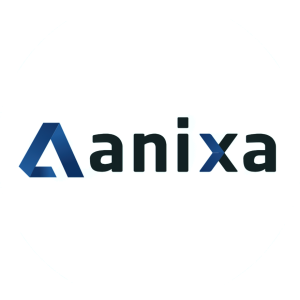Anixa Biosciences Initiates Dosing in Third Cohort in its Ovarian Cancer CAR-T Clinical Trial
Rhea-AI Summary
Anixa Biosciences (NASDAQ: ANIX) has initiated dosing in the third cohort of its Phase 1 ovarian cancer CAR-T clinical trial, conducted in partnership with Moffitt Cancer Center. The new cohort receives one million CAR-positive cells, a tenfold increase from the initial dose. No dose-limiting toxicity was observed in the first two cohorts. The trial targets the follicle-stimulating hormone receptor (FSHR) in patients with recurrent ovarian cancer who have progressed on at least two prior therapies. Notably, one patient from the first cohort showed unusual stability and mild improvement for over a year post-infusion, with tumor biopsy revealing necrosis and T cell infiltration.
Positive
- No dose-limiting toxicity observed in first two cohorts
- One patient showed unusual stability and improvement for over a year
- Protocol amendment submitted to allow additional dosing for benefiting patients
- Successfully progressing to higher dose levels in clinical trial
Negative
- None.
News Market Reaction
On the day this news was published, ANIX declined 0.97%, reflecting a mild negative market reaction.
Data tracked by StockTitan Argus on the day of publication.
Third cohort dose is one million CAR positive cells; ten times higher than the first cohort dose
No dose limiting toxicity was observed in the initial three-patient cohort or in the second three-patient cohort, in which patients received a CAR-T cell dose triple that of the first cohort. After the required one-month waiting period to assess the occurrence of dose limiting toxicity and review of all safety data, the trial has now dosed its first patient in the third cohort at a tenfold increase over the initial dose.
Anixa's FSHR-mediated CAR-T technology targets the follicle-stimulating hormone receptor (FSHR), which research indicates is exclusively expressed on ovarian cells, tumor vasculature, and certain cancer cells. The first-in-human trial (NCT05316129) is enrolling adult women with recurrent ovarian cancer who have progressed on at least two prior therapies. The study is designed to evaluate safety and identify the maximum tolerated dose, while monitoring efficacy.
Dr. Robert Wenham, principal investigator of the study and Chair of the Department of Gynecologic Oncology at Moffitt, stated, "With no dose-limiting safety issues observed in the first and second patient cohorts, we have advanced to the next cohort to evaluate a 10x higher dose compared with the starting dose. As the trial continues, our aim is to demonstrate the tolerability of our CAR-T but we are optimistic and hopeful about seeing efficacy in this solid tumor—a challenging area for traditional CAR-T therapies, which have shown efficacy mainly in hematologic tumors and lymphomas. We are very encouraged how the trial has progressed and our observation in one patient from the first cohort who had relative stability and even some mild improvement for well over a year after her infusion. This is highly unusual for a platinum resistant multiply treated ovarian cancer. A tumor biopsy showed necrosis and T cell infiltration. Based on these findings, we recently submitted an amendment to the trial protocol to allow patients who may benefit from an additional dose. Generally, we expect higher cell doses to increase efficacy, although we also anticipate a second dose may further improve response rates and durability. We are proud of the progress to date and look forward to treating additional patients in the third cohort."
About Anixa Biosciences, Inc.
Anixa is a clinical-stage biotechnology company focused on the treatment and prevention of cancer. Anixa's therapeutic portfolio consists of an ovarian cancer immunotherapy program being developed in collaboration with Moffitt Cancer Center, which uses a novel type of CAR-T, known as chimeric endocrine receptor-T cell (CER-T) technology. The Company's vaccine portfolio includes vaccines being developed in collaboration with Cleveland Clinic to treat and prevent breast cancer and ovarian cancer, as well as additional cancer vaccines to address many intractable cancers, including high incidence malignancies in lung, colon, and prostate. These vaccine technologies focus on immunizing against "retired" proteins that have been found to be expressed in certain forms of cancer. Anixa's unique business model of partnering with world-renowned research institutions on all stages of development allows the Company to continually examine emerging technologies in complementary fields for further development and commercialization. To learn more, visit www.anixa.com or follow Anixa on Twitter, LinkedIn, Facebook and YouTube.
Forward-Looking Statements
Statements that are not historical fact may be considered forward-looking statements within the meaning of the Private Securities Litigation Reform Act of 1995. Forward-looking statements are not statements of historical facts, but rather reflect Anixa's current expectations concerning future events and results. We generally use the words "believes," "expects," "intends," "plans," "anticipates," "likely," "will" and similar expressions to identify forward-looking statements. Such forward-looking statements, including those concerning our expectations, involve risks, uncertainties and other factors, some of which are beyond our control, which may cause our actual results, performance or achievements, or industry results, to be materially different from any future results, performance, or achievements expressed or implied by such forward-looking statements. These risks, uncertainties and factors include, but are not limited to, those factors set forth in "Item 1A - Risk Factors" and other sections of our most recent Annual Report on Form 10-K as well as in our Quarterly Reports on Form 10-Q and Current Reports on Form 8-K. We undertake no obligation to publicly update or revise any forward-looking statements, whether as a result of new information, future events or otherwise, except as required by law. You are cautioned not to unduly rely on such forward-looking statements when evaluating the information presented in this press release.
Contact:
Mike Catelani
President, COO & CFO
mcatelani@anixa.com
408-708-9808
![]() View original content to download multimedia:https://www.prnewswire.com/news-releases/anixa-biosciences-initiates-dosing-in-third-cohort-in-its-ovarian-cancer-car-t-clinical-trial-302307993.html
View original content to download multimedia:https://www.prnewswire.com/news-releases/anixa-biosciences-initiates-dosing-in-third-cohort-in-its-ovarian-cancer-car-t-clinical-trial-302307993.html
SOURCE Anixa Biosciences, Inc.








